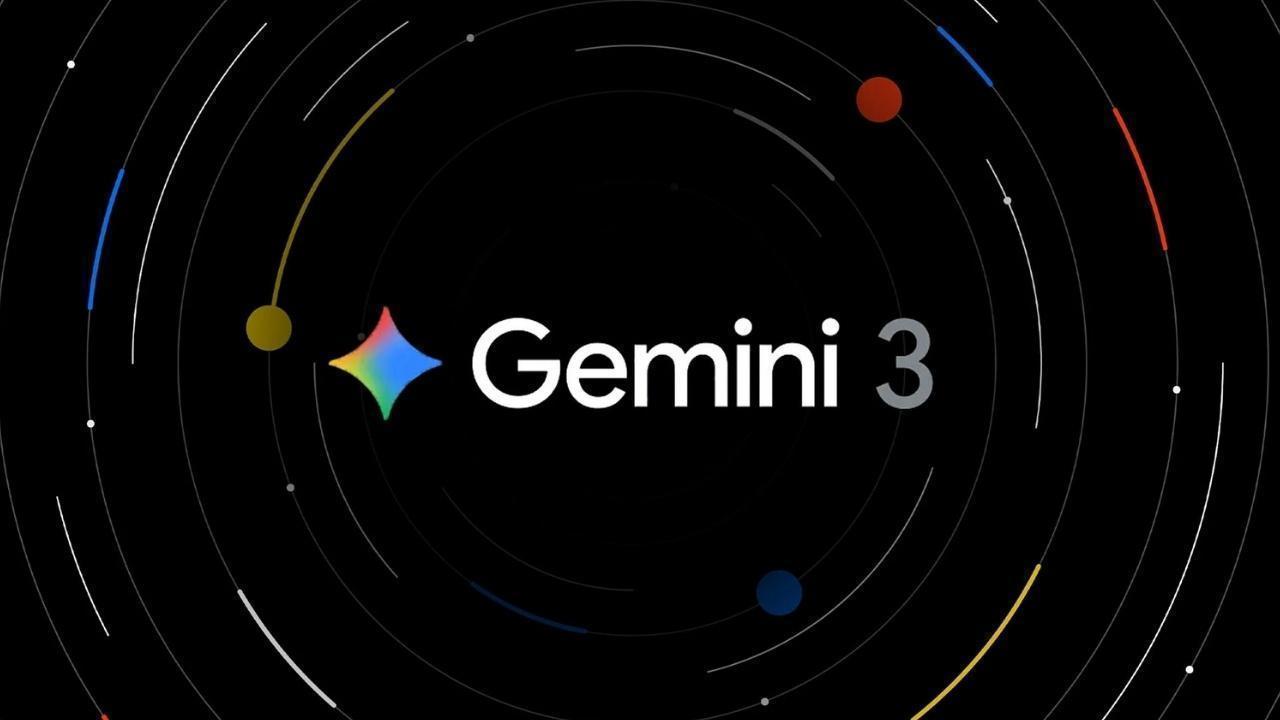You have not yet added any article to your bookmarks!

Join 10k+ people to get notified about new posts, news and tips.
Do not worry we don't spam!

Post by : Anis Farhan
This week marks a pivotal advancement in artificial intelligence with the unveiling of Google’s Gemini 3. For the average user—whether you’re a student, a professional, a parent, or interested in hobbies—this latest model represents more than just a technological upgrade. It promises to transform how we search, learn, create, and interface with our devices. However, it also raises important questions: What will be new? Will my search experience be altered? Are there risks or new habits to incorporate? This article clarifies the essentials of what you need to know as a regular user right now.
Gemini 3 represents Google's latest and most capable AI framework, adept at processing text, images, videos, and more in an integrated manner. Moving beyond prior models that predominantly addressed text, Gemini 3 is built to comprehend various types of inputs (think photos, text prompts, sketches) and return sophisticated, interconnected results. For instance, you could send an image of a drawing and ask it to draft a website layout or share a diagram seeking a simplified explanation.
According to Google, Gemini 3 now operates within its search engine's "AI mode" toggle. This means that users can access these enhanced features directly through Google Search rather than a separate application. Consequently, AI is becoming an integral part of the everyday user experience, rather than a peripheral feature.
The crux here is that Google is positioning AI as a fundamental tool, rather than an added extra. For users, it's less about observing demonstrations and more about the potential for noticeable changes in your search and chat experiences. And yes, you probably will perceive some differences.
Typing isn’t a necessity anymore. You can now upload images of handwritten notes, screenshots, sketches, or even short video clips—and Gemini 3 can interpret those entries to deliver useful responses. For example, you could take a photo of a recipe and request a version tailored for two people, considering the ingredients you have on hand.
In lieu of simple link lists when you make a query, you may receive richer, interactive responses: visual aids, side-by-side comparisons, mini-tools (like a basic calculator), and follow-up suggestions. If you query something such as, "What’s the best camera under ₹50,000 for travel?" you might see an interactive table, pros and cons, sample images, and options addressing trade-offs (for example, between budget, weight, and battery life) all in one view.
Gemini 3 introduces features akin to having an agent at your service. You could request, "Plan a weekend in Goa with family under ₹30,000, include vegetarian meals, and suggest family-friendly activities." The model would generate a detailed itinerary, potential links, and possibly even make reservations or propose adjustments. This service extends beyond answering a single query to orchestrating multiple tasks.
Ten years ago, AI responses often felt bland or generic. With the arrival of Gemini 3, Google underscores the importance of deeper reasoning: nuanced answers, clarifying questions, and the ability to identify ambiguity in queries, leading to more precise assistance. This model steers clear of offering "safe but vague" responses in favor of more meaningful interactions.
While the global announcement is notable, actual availability will differ based on region, device type, and subscription tier. Free-tier users might see some features roll out later, while premium functionalities could be restricted to paid plans. For instance, a major telecom partner in India announced complimentary access for many users, so be sure to check your device and subscription status.
Students and lifelong learners will receive enhanced support. Whether you need assistance with a physics problem, a historical event, or analyzing complex data, instead of just textual explanations, you might receive visual breakdowns and interactive tools. Need a summary while reading a research paper or attending a lecture? Gemini 3 can handle lengthy inputs across diverse formats.
If you're working on designing a poster, video editing, website planning, or script writing, Gemini 3 can grasp sketches, diagrams, and video snippets, turning them into actionable output. For instance, you may capture a drawing and have it transformed into vector artwork or translated into code. This means fewer tools and a more integrated creative experience.
Tasks such as organizing emails, drafting replies, summarizing chats, planning trips, and file management can now benefit from AI assistance. You might instruct it to "Organize my inbox, point out action items, set reminders, and draft responses for flagged messages," and the model could manage everything in one cohesive workflow. As a result, your device transitions from being merely a tool to a smarter assistant.
When exploring purchase options, outlining travel plans, checking health choices, or even hunting for recipes, Gemini 3-enhanced search results may minimize clicks and simplify navigation by delivering consolidated, interactive answers. This not only saves time but also deems it crucial to understand how the results are curated.
Not all features may be free or available right away. Some advanced functionalities (like multimodal uploads and extensive agent workflows) could require a paid subscription or upgraded devices. Users are advised to confirm their tier and whether particular features are accessible in their region.
Using AI may invoke concerns regarding data storage, its usage, and security when uploading images, videos, or documents. It is wise for everyday users to review the privacy policy, consider what content they share, and potentially refrain from uploading sensitive personal or financial documents until comfortable.
Despite its advancements, the model isn’t flawless. It may still make errors—particularly when lacking context or dealing with ambiguous prompts. Relying solely on it for critical decisions (like financial or medical advice) isn't advisable. It should serve as a robust tool, complemented by human oversight.
As Gemini 3 integrates deeply with Google Search, your information discovery and consumption methods may shift. If AI-driven answers replace conventional link-heavy responses, you might find yourself visiting fewer websites directly, possibly impacting your access to comprehensive sources. It's important to remain vigilant: check original sources when necessary, seek “Powered by AI” tags, and stay mindful of potential biases or gaps in information.
Advanced multimodal AI often requires enhanced connectivity, more memory, or newer devices. If you own older smartphones or tablets, full experience may take longer to reach you—or you might encounter lag or limited features. Users should be patient and plan accordingly.
If you're in India utilizing Google’s AI services, check for your access to Gemini 3 features. Certain telecom partners have announced free access for specific users. You can verify via the app or service provider.
Ensure your devices (smartphone, tablet, PC) are updated: install the latest OS updates, refresh the Google app, and confirm eligibility for new AI features.
Start experimenting with simpler functionalities today: upload images of receipts and request spending summaries; photograph handwritten notes for digital versions; or take a short video and request editing advice. These initial tests will help gauge your device and account capabilities.
If you notice an “AI mode” toggle or distinctive icon in Google Search, attempt a complex query: ask for logical explanations, detailed guidance, or creative outputs. Observe how the responses contrast with conventional search results and explore any interactive features offered.
If you intend to utilize Gemini 3 for work or study, establish a routine: dedicate time to explore new features, determine where they can assist (e.g., drafting, brainstorming, summarizing) and pinpoint areas where human involvement is still crucial. Avoid over-reliance.
As advanced features might consume more data (such as video uploads or image analyses), review your internet package and battery status. With slower networks, you might experience diminished returns from these enhancements.
The rollout in India will likely unfold in phases. Some features might become available later; updates may prioritize specific regions or languages first. Keep an eye out for announcements from Google or your service provider.
As more individuals utilize AI-generated responses via Search, fewer may turn to traditional websites. This shift could affect how information is surfaced and how straightforward it is to access in-depth articles or niche platforms. Those who favor extensive research may need to dig deeper instead of relying solely on instant summaries.
Education, training, hobbies, and creative efforts are expected to progress more rapidly. An AI that can handle photos, videos, and diagrams means that learners may turn to interactive prompts over textbooks. Creators will weave AI tools into their storyboarding, drafting, and publishing efforts. Everyday users will face both opportunities and the necessity to adapt to fresh workflows.
Should Gemini 3 set a new standard, users will anticipate that their devices (phones, tablets, laptops) can support heightened AI functionalities. This demand may drive hardware upgrades or motivate users to leverage web access if their device’s capabilities are insufficient.
With advancements in AI capabilities, queries regarding data usage, content generation, and bias management will transition from niche tech-policy discussions into everyday dialogues. Users will increasingly encounter decisions about what they share, what they trust, and how they maintain their online safety.
The introduction of Gemini 3 symbolizes a significant moment in AI becoming embedded in daily life for millions. For the typical user, this is not a distant developer tool—it is something you can actively engage with through Search, uploading photos or videos, posing complex questions, or streamlining routine tasks. The possibilities are vast: enhanced learning, accelerated creative processes, smarter productivity, and richer experiences with your existing devices.
However, as opportunities arise, so too does responsibility. It is crucial to stay alert regarding subscription levels, data usage, device capabilities, privacy settings, and the understanding that AI is a powerful assistant—not an infallible source of truth. As features roll out, everyday users stand to gain most by exploring thoughtfully, integrating new tools where beneficial, and remaining anchored in human judgment where needed.
If you're ready, now is an opportune time to examine Gemini 3. Begin modestly—test a multimodal feature, try a complex query, compare responses, and discover how this new layer of AI can enhance your daily activities. Soon, the question will shift from whether you use AI to how effectively you do.










Five Rising Stars Compete for BAFTA’s Only Public-Voted Film Award
BAFTA names five breakthrough actors for its public-voted award, celebrating bold new performances a

Scott Robertson Steps Down as All Blacks Coach After Review
Scott Robertson has agreed to leave his role as All Blacks head coach after a performance review, de

Afghanistan Limits Rashid Khan’s Overseas League Appearances
Afghanistan Cricket Board caps foreign league play for star players to protect fitness and ensure co

Philippines, Japan Strengthen Defence Ties Amid Regional Tensions
Philippines and Japan sign defence pacts, including military resupply deal and $6m naval support, am

Bounou the Hero as Morocco Beat Nigeria on Penalties to Reach AFCON Final
Goalkeeper Yassine Bounou shines as Morocco defeat Nigeria 4-2 on penalties to book a thrilling AFCO

Labubu Doll Factory Faces Worker Exploitation Allegations in China
Investigation claims Pop Mart supplier made employees work long hours, sign incomplete contracts, an